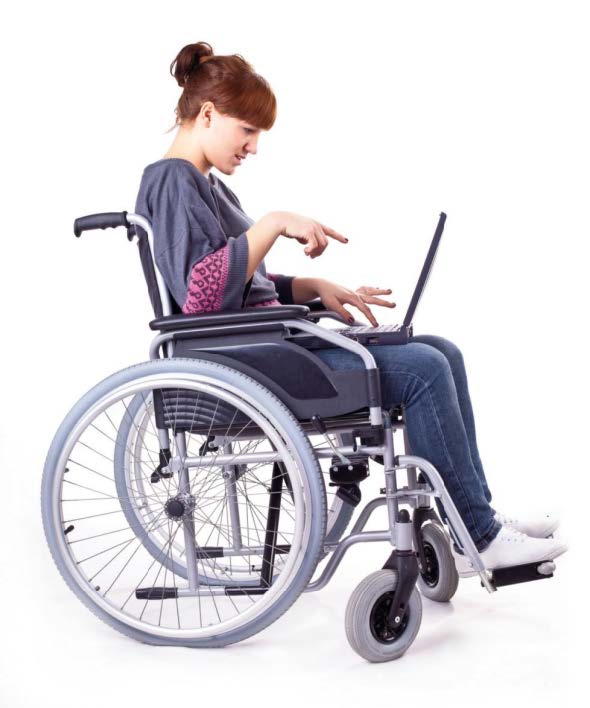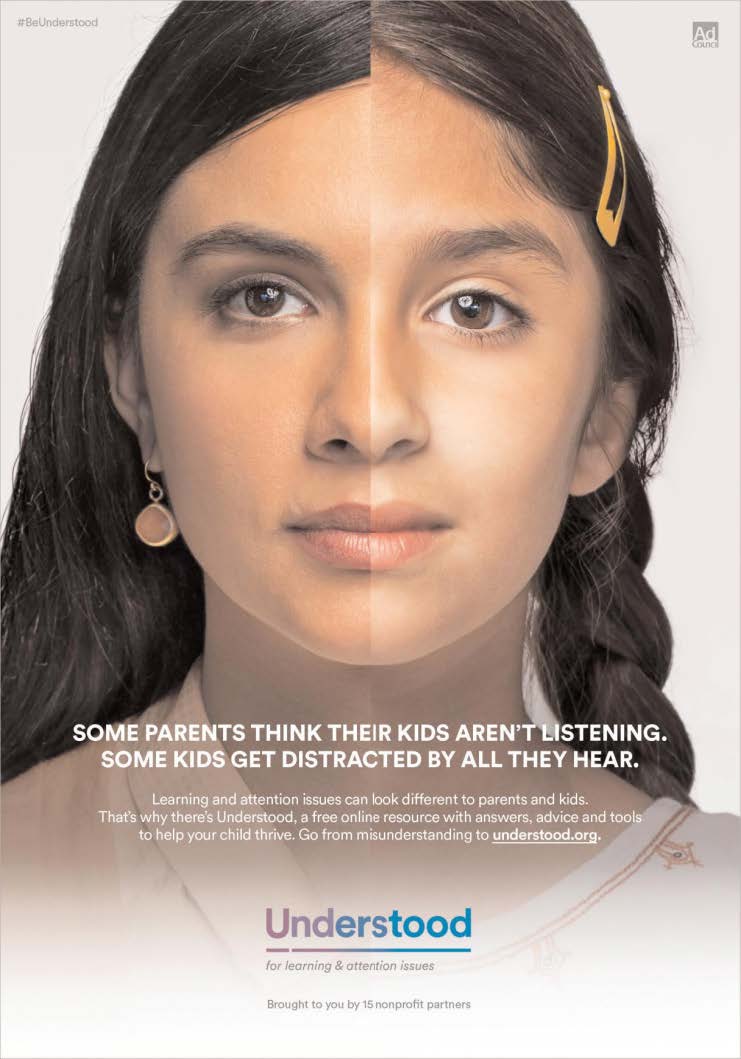Transition for Young Adults with Complex Care Needs

Transitioning from a dependent adolescent to an independent adult can be a significant change for most young adults. This journey challenges individuals as they struggle to gain autonomy over their lives. Many move away from home, learning the challenges of daily decision making and independence. In addition to the myriad of new experiences associated with living independently, those with complex care needs have the added burden of taking over the responsibility of their own care. As they shift from pediatrician to adult care providers, they must now manage insurance claims, maintain prescriptions, and schedule appointments for themselves. Already facing the challenge to maintain their health, these added responsibilities can add enormous weight to the difficulties inherent in gaining independence and control over their own lives.
In addition to the myriad of new experiences associated with living independently, those with complex care needs have the added burden of taking over the responsibility of their own care.
Why is the Transition Especially Important with Complex Care Needs?
Complex care needs include any history of chronic conditions and special needs that require supplementary medical attention and treatment. Complex care patients typically use numerous types of health services and seek care from a greater number of doctors than individuals without these conditions. In addition, an individual with complex care needs may also suffer from functional limitations and require supplemental assistance for activities of daily living (ADL) such as eating, bathing, dressing, toiling, walking, and continence. While navigating around a new city or college campus and building a newfound community, young adults with complex care needs also need to transition from the familiarity of a family pediatrician to an adult-centered practitioner. Although everybody's transition looks different, young adults with complex care needs must face this transition with the challenge of advocating for themselves, to ensure they receive proper support and accommodations.

IN GOOD HANDS: Young adults with complex care needs also need to transition from the familiarity of a family pediatrician to an adult-centered practitioner.
What Makes the Transition Hard?
Adult-centered healthcare can be a stark contrast to the personalized care of a pediatrician. Pediatricians are trained to treat and diagnose many conditions that start at birth, or manifest themselves during childhood. Their vast knowledge of the individual's personal condition can prove to be extremely valuable for a child requiring complex care, and can help boost the confidence of the child and their parents, making them feel as though they are receiving appropriate medical attention. In addition, pediatricians often spend 18 years with the patient and often know them beyond their medical history.
Pediatricians are cognizant of their family background and history and are familiar with the individuals aside from their conditions. These factors can help pediatricians to excel in helping their young patients to thrive.
Often, this intimate doctor-patient relachildrensnational.org/choose-childrens/deciding-on-care/support-for-families/parent-navigator-program 22 October 2017 • EP Magazine | EXCEPTIONAL PARENT tionship comes to a halt upon transition. Adults often receive less time with their doctors and express discomfort in having less personalized meetings with their practitioners (Reiss et al. 2005). After spending 18 years building up a relationship with a former pediatrician, this potentially stark difference can be daunting for a young adult with significant healthcare needs. In addition to the loss of the personal connection, they need to deal with the loss of the medical connection as well, as they educate their new doctor about 18+ years of medical history and procedures. This loss of support and familiarity has the ability to pose roadblocks for many young adults with complex care needs.
Working Through the Transition
Mallory Cyr, from the Colorado Department of Health Care Policy & Financing, who has additionally been a longtime advocate for health care transition, says that while the transition to adultcentered complex care may be difficult, there are different ways for a parent or guardian to help ease the transition:
1.Start the transition from a young age. More time devoted to easing into the transition will minimize the surprises once the big day arrives. Start early, making sure your child knows the medical terms for their condition and their medications, as well as what their health care needs are. Slowly offer more control and responsibility over their own health as your child matures. Give your child the option to be involved from an early age, but don't push it if they aren't ready.
2.Strive for positivity; have confidence in your child. In the world of complex care conditions, negativity often pervades the descriptions of your child's limitations. Strive to maintain a positive outlook with your child so that they may conquer their future with confidence. Help your child to become autonomous and independent, and trust that they are capable. Even small acts, such as allowing them to be responsible for keeping their own insurance card, will help them to learn and grow.
3.Help your child be their own biggest advocate. Teach your child to be resilient and to ask questions. Encourage them to be their own biggest advocate. Teaching them to advocate for themselves is one of the most useful gifts you can provide your child.
4.Transition your child when the time is right. Know that there is not one age in which this transition is supposed to occur. Children hit milestones at different times. Do not base the "right" time for your child to transition based on chronological age.
5.Break down the barrier that your child must be completely independent posttransition. Let your child know that it is always okay to seek out support, even after they have gone through the health care transition. Becoming independent and having a parent as a trusted partner do not need to be mutually exclusive.
6.Open the lines of communication. Start a dialogue with your child's pediatrician early about transferring medical records. Ask all trusted sources for recommendations of adult-care providers in the area.
7.Reach out for help when needed. Every family's transition is different, but parents may learn or get support from other families who have gone through similar experiences.
With the help of her parents giving her the space to grow and be independent, and Mallory's constant efforts to improve and gain a better grasp over her condition, she was able to move to a different city for college, while restarting her medical process with new doctors and new sources of support. Although Mallory's story serves as a ray of hope, many individuals struggle to find proper care as they transition from childcentered to adult-centered care for their complex medical conditions. Encouraging a dialogue on changing this dynamic may bring about future progress toward the goal of a seamless transition to adult-centered care for young adults with complex health needs. •
Special thanks to: Mallory Cyr, MPH Health Policy, Contract, and Disability Liaison for the Colorado Department of Health Care Policy & Financing, (207) 576-1980 and Dr. Moire Stevenson, Ph.D., Clinical Psychologist, Mackay Rehabilitation Centre, 1 (514) 488-5552
ABOUT THE AUTHOR: Caroline Spartin is a rising junior at the University of Michigan studying public health. She is interested in environmental health, genetics, and disease prevention.
Students with disabilities need to learn how to advocate for themselves in order to foster independence when transitioning to adult life. Groups that encourage the voices of youth and young adults can help facilitate this process.
Core Concepts of Transition
For students receiving special education, transition planning is required in the IEP (Individualized Education Program) and includes:
• Education • Employment • Community Participation • Independent Living
It is important to keep in mind that regardless of disability status, the American Academy of Pediatrics states that all youth require healthcare transition from pediatrics to adult providers. For some students receiving special education, the healthcare transition component may be a very important factor in all four transition domains of the IEP and should be considered when developing goals.
Groups for youth and young adults may provide opportunity for building a foundation of skills to address these core concepts that enable youth to have meaningful participation in the process of planning for their own futures.
Examples of Youth Empowerment Groups:Health Advocacy on National and State Levels
Family Voices national ("keeping Empowerment Groups: Health Advocacy on Examples of Youth families at the center of children's health care") supports a group called KASA, Kids as Self-Advocates. This is a national group created by and for youth with special needs. KASA representatives are leaders in their communities. They discuss information among their peers, enabling them to become more independent. KASA representatives work with healthcare providers, policymakers, and others to voice their concerns. KASA recognizes that youth and young adults can make choices and self-advocate, and develops and disseminates resources to help youth do so. Examples include tip sheets on Civil Rights and Advocacy, Going to College, and Working with a Group, among others. KASA also has a Facebook page which they use to alert the KASA network about current events (for instant advocacy), and connect members with each other.

The National Center for Family Professional Partnerships, a project of Family Voices in collaboration with SPAN, includes a focus on enhancing diverse youth participation in systemslevel groups to improve services to and outcomes for youth with special healthcare needs. Working with KASA, the Autistic Self-Advocacy Network, and Youth MOVE, the NCFPP facilitated three webinars last year to support youth advocacy: Participating in Advisory Groups; Sharing your Story for a Public Policy Purpose; and Working with Adult Allies. You can find these webinars at www. fv - nc fpp . org / too l s - and resources/training-webinars/.
Building on the KASA concept, many state Family to Family Health Information Centers (F2Fs) and Parent Training and Information Centers (PTIs) have developed state Youth Advisory Councils. The Statewide Parent Advocacy Network (SPAN), which is the NJ F2F and PTI, as well as home for NJ Family Voices, collaborated with KASA to form NJ YELL (Youth Excelling to Lead & Learn.) Originally funded by HRSA (Health Resources and S e r v i c e s Administration), NJ YELL became part of the state's Community of Care Consortium (COCC) which is comprised of key stakeholders including government agencies, It is important to keep in mind that regardless of disability status, the American Academy of Pediatrics states that all youth require healthcare transition from pediatrics to adult providers. family organizations, and medical providers, dedicated to improving NJ's performance measures for the six core outcomes for children with special healthcare needs and their families, one of which is transition. NJ YELL participation in the COCC provides a unique opportunity for youth to have direct engagement, as well as the opportunity to advise those in charge of the systems of care that serve children and youth.
NJ YELL is comprised of a culturally diverse membership, which welcomes ALL youth/young adults ages 16 -26. There is no criteria for membership beyond that of wanting to learn, collaborate and hopefully have a little fun along the way. It is important to consider the needs of all members and provide accommodations as needed. NJ YELL members have participated in faceto-face meetings, teleconferences, webinars and special events that are dedicated to increasing advocacy and improving transition to adult life. NJ YELL was the first youth group to present at a plenary session at the AMCHP (Association of Maternal and Child Health Programs) conference. NJ YELL maintains a Facebook page to share resources, events and information, as well as a Youth Resources for Empowerment page on the SPAN website. NJ YELL members receive stipends for sharing their perspective and participation in meetings.
The goal of NJ YELL is "To increase the participation of all youth in the decisions regarding their healthcare and access to services, to enable them to have leadership roles across the state of New Jersey by:
• Strengthening the voice of youth with special healthcare needs in the planning, implementation, and evaluation of integrated, community-based systems of care.
• Working to raise awareness, identify and implement strategies among providers, agencies and organizations that serve youth with special healthcare needs.
It is important to keep in mind that regardless of disability status, the American Academy of Pediatrics states that all youth require healthcare transition from pediatrics to adult providers.
With additional PTI funding, NJ YELL expanded beyond healthcare transition. Its current mission is to:
• Understand rights and responsibilities and find resources such as housing, internships for college, education, DVRS (Division of Vocational and Rehabilitative Services), and health insurance needs.
• Learn skills and resources that will assist in promoting self-advocacy, and regulating self-care, pertaining to disability.
• Know what accommodations are needed for transition into adulthood.
• Learn ways to effectively communicate needs and wants to others.
• Use guidebooks and checklists with doctors, nurses, family and or counselors to aid in progress.
Other state youth groups include the New Hampshire YEAH (Youth Education, Advocacy, and Healthcare) Council, a collaboration of the NH PTI (NH Parent Information Center) and F2F (Family Voices-NH). The NH YEAH Council comes together monthly to discuss issues involved in what it means to be a young adult with a chronic health condition, and how best to make the transition to the adult healthcare system. They work to educate other youth on how to handle their transition to adulthood, as well as educating medical professionals about what they can do to facilitate that transition. For more information, visit their website at yeahnh.org or email them at yeahcouncil@nhfv.org.
In Puerto Rico, the Department of Health sponsors the Puerto Rico Youth Advisory Council, whose membership includes 25 youth with and without special healthcare needs and whose focus is using positive youth development to engage youth as leaders across all the health domains. Established by a Department of Health Administrative Order, it advises on youth-related initiatives and public policies regarding adolescent health, carries out public education with youth and adults, and represents the Department of Health at conferences, including the 2017 AMCHP (Association of Maternal and Child Health Programs) conference. You can find out more by contacting Bessie R. Lopez Melendez, the Positive Youth Development Coordinator, at bessielopez@salud.pr.gov.
There are many different kinds of groups that support input from youth and young adults with special needs. Hopefully, our example will provide inspiration and help you start your own group. Other opportunities for self-advocate representation include Centers for Independent Living, State Special Education Advisory Councils, and Governor's Councils on Developmental Disabilities. In addition, Parent Training and Information Centers and Family to Family Health Information Centers can help families with transition issues (see Resources, previous page).
ABOUT THE AUTHORS: Erin Seigh is the Transition Coordinator for the Statewide Parent Advocacy Network (SPAN). Lauren Agoratus, M.A. is the parent of a child with multiple disabilities who serves as the Coordinator for Family Voices-NJ and as the central/southern coordinator in her state's Family-to-Family Health Information Center, both housed at SPAN, found at spanadvocacy.org
